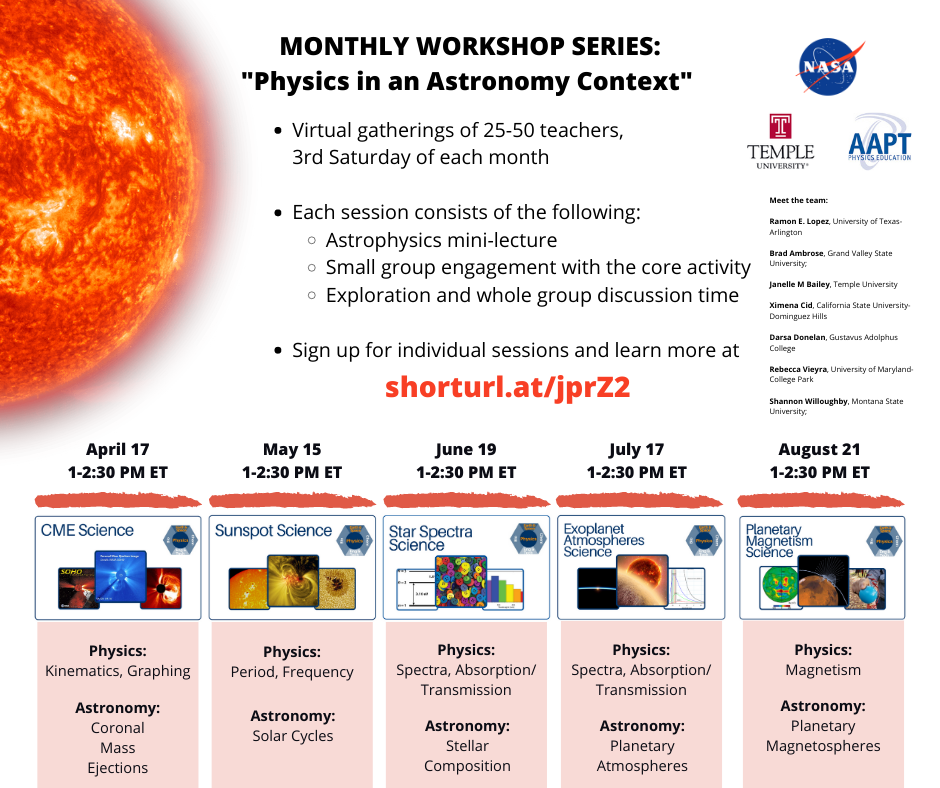NASA Space Science Education Consortium

AAPT and Temple University are among the 27 partners in the NASA Space Science Education Consortium. This 5-year initiative from NASA's science directorate leads the development of research-based instructional materials for astrophysics taught in the context of introductory and upper division physics and astronomy courses, as well as K-12 teacher preparation.
Each year, the NASA Space Science Education Consortium identifies a different theme on which all partners collaborate to create educational resources. Click the buttons below to get access to the resources developed by the Temple/AAPT team.
Each year, the NASA Space Science Education Consortium identifies a different theme on which all partners collaborate to create educational resources. Click the buttons below to get access to the resources developed by the Temple/AAPT team.
Resources for Teachers
Solar Activity-Themed Resources
Solar Eclipse-Themed Resources
Exoplanet-Themed Resources
Monthly Workshop Series: Learn more and REGISTER HERE.


